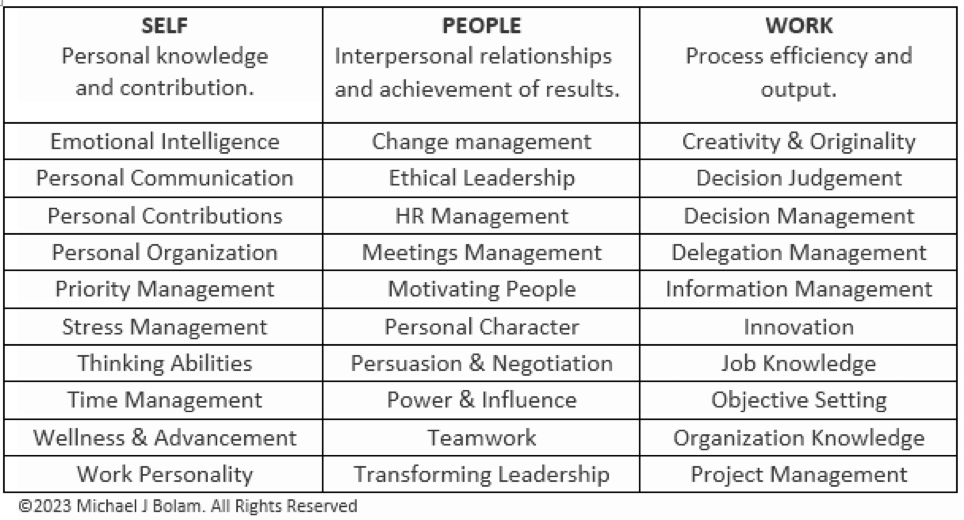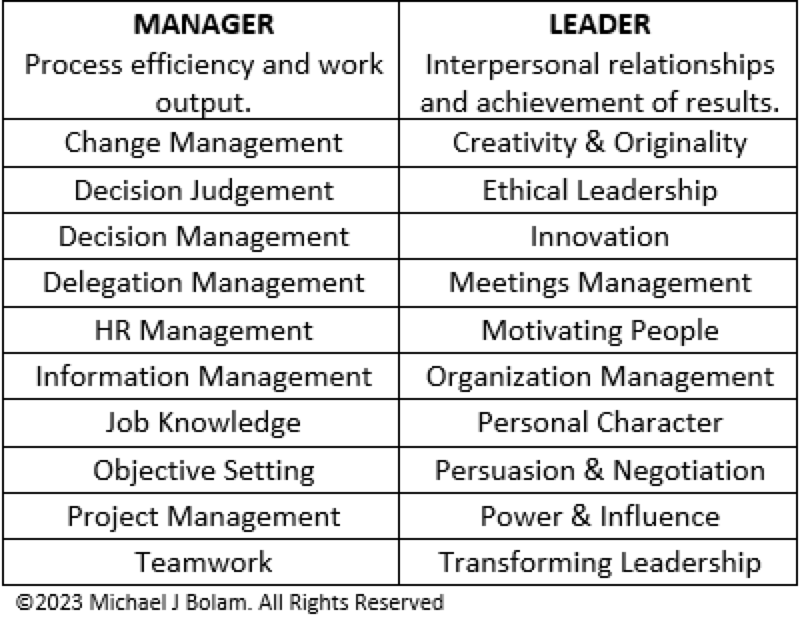Michael J Bolam’s post originally published on trainingindustry.com
Each day brings new perspectives on the topic of soft skills — diverse expertise and knowledge particularly in the selection of soft skills that can transform you, your team and your organization for the better. Despite the clear advantage of soft skills in the workplace, it can be confusing knowing how to apply this knowledge to your people.
Even the term “soft skills” can take on a different connotation depending on the author or source in an attempt to describe their importance or impact to work performance and productivity. Organizations are recommended to take this and that approach, do this and do that. The volume of suggestions is almost overwhelming, and it’s time-consuming digesting all the advice.
Stop there! Let’s go back to the beginning and take a simpler and more logical approach to the use of soft skills in the workplace. Take the term soft skills for starters — why use the phrase “hard and soft skills” when comparing technical and non-technical skills?
Non-technical skills are soft skills — but they’re just as robust, impactful and important as technical skills when it comes to improving performance at an individual, team and organizational level. Measuring business outcomes can demonstrate this point time and time again.
So, why not refer to these skills for what they primarily represent? Soft skills are human-centric skills, ranking equally alongside technical skills. Bury the term soft skills once and for all. Keep the focus on human-centric skills. This way, everyone has clarity on what exactly soft skills are and their purpose in impacting the workplace. Next, we need to define what these human-centric skills encompass. Here, confusion abounds, too! Most days there is a new article or report identifying the “3 Most Important Skills” or “5 Key Skills.” In essence, these references are only a snapshot of what exists in reality.
Human-centric Skills Model
In 1996, Michael Bolam, a human resources (HR) consultant asked James Noon, an academic and author to carry out an 18-month research project to identify the important characteristics and traits that related to performance in the workplace, outside of technical skills. Noon’s research identified some 240 directly relevant drivers that had a direct impact on an individual’s ability to work at a consistently high level of competency. From this treasure chest of research data a model of abilities was developed and which today, comprises 262 abilities in the performance areas of “Self, People and Work.”
The table of human-centric skills is shown below:
A further model was developed as the “Leader-Manager Development Framework” with an emphasis on leadership performance development. The Self performance area remained the same composition of skills and the Leader and Manager performance areas included the following skills, as shown below:
Together the human-centric skills shown in these tables form clusters of skill sets and capabilities. This makes the models unique and powerful development tools. The skill model also helps with selecting the relevant skills for career development and identifying areas for improvement.
For example, an individual in the Self performance area has a requirement to improve their personal organization skills and can refer to the personal organization cluster to identify the skill sets associated with this skill development. In this example, it would be information management, objective setting, priority management and time management.
This same process applies to all 30 human-centric skills contained in the two models. After identifying what skills to improve on and to develop, we must consider the developmental pathways for these human-centric skills.
The foundation for all human-centric skills begins with SELF:
- Self-performance – life planning, behavior and productivity.
- Leadership performance – decision-making, process output, structural development, integrity, visioning and engagement.
It’s imperative that individual contributors are competent in self-management before progressing to the next level of development. Throughout the employee lifecycle, learners can continue to build their foundation of human-centric skills. Learning and development (L&D) professionals can facilitate training on these skills with blended learning activities like job aids, quizzes, and eLearning courses. You can measure performance improvement and outcomes against clearly defined objectives.
Don’t let the term “soft skills” confuse you. Soft skills (I.e., human-centric skills) are impactful skill sets that are imperative in today’s business world. With the human-centric skills model, you can customize your employee’s development in these skills, and assign their L&D according to their performance needs. You clarify the importance of human-centric skills in employee development and strengthen your organization’s workforce.
Michael J. Bolam
Mike Bolam’s career has encompassed every aspect of human resource management up to director level as well as considerable experience in managing, developing and implementing capacity building and other performance development programs over a period of some forty years.


